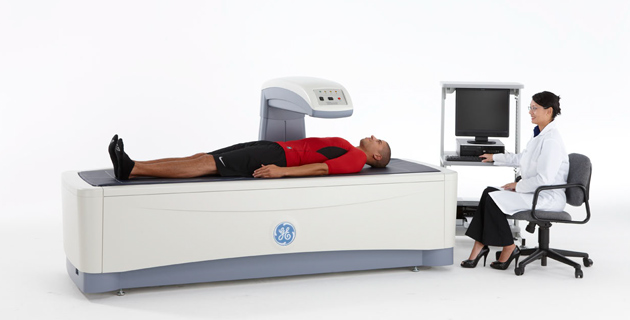Lots of us want to tone up and look our best. Of course, at certain times - like just before holidays or a wedding - we become very motivated. We want to shape up - and fast! Over the years working as a sports dietitian, I’ve seen so many clients do this the wrong way.
It’s very tempting when time is of the essence to do something drastic…slash the calories, cut the carbs or take some innocuous looking pills or supplements to shed the body fat fast.
So often, these methods fail.
So what are the best options to shape up in a short time?
Here are my 4 fail safe options for improving your body composition in the quickest time possible that anyone can follow.
1. Understand your body composition first.
This isn’t just about jumping on a scale and seeing what the number is or ‘pinching’ anything you don’t like the look of, this is about understanding your lean muscle, bone mineral density and fat distribution using the most accurate methods possible.
Losing weight is just a guide and for some, it isn’t that useful at all.
There are many factors that make up that number, including shifts in water balance, menstrual periods and whether you are performing any resistance training (you should be!). As a consequence, gaining more lean, toned muscle and that means the number hardly moves at all.
Even measuring waist circumference is a very general guide as many people suffer with bloating or don’t lose much body fat from their waist initially, instead losing it from their arms, legs or other peripheral areas first.
There is a better way and my preference is for clients to have a dual x-ray absorptiometry (DEXA) scan.
This is the gold standard in body composition and allows you to see not only what body fat is on the surface, but deep breath the skin and around the organs, which can have consequences for your future health such as developing diabetes and heart disease.
Even more useful, previous years of dieting or starting to reach our more mature years can leave some patients with weakened bones. A DEXA scan will pick this up and allow you to make the necessary diet and lifestyle changes before osteoporosis becomes the end result.

2. Eat enough protein but don’t become a carnivore…
Most of my clients are aware of the importance of protein for getting in shape. It helps with reducing appetite, preserving muscle tissue and getting some vital nutrients, but frankly some are overdoing it.
You see, whilst there’s no safe upper limit to protein consumption for adults set by world health organisation, so long as you’re otherwise healthy, there is a threshold that your body needs to preserve muscle tissue. The rest just goes into your calories for the day which might be better used by other nutrient rich foods, such as essential fats, fruits, vegetables.
Eating more protein won’t magically make the fat melt off. So how much do you actually need?
A “palm-size” amount of protein rich-foods, such as meat, fish, poultry, eggs, dairy products (yoghurt, cheese and milk) per meal is a good starting point.
What about protein supplements?
Protein supplements are just highly processed food, they can be handy for getting extra protein into your diet but they are not magical.
Research does indicate that taking protein around training is useful for preserving muscle tissue but you can also accomplish this with other foods, such as a glass of milk. Don’t be fooled by fancy marketing and drink protein shakes all day long, they won’t get you a dream body any faster.
3. Do I need a vitamin and mineral supplement?
The truth is that vitamins and minerals tend to be better absorbed and retained from wholesome foods rather than dietary supplements, this is because they are contained within a ‘food matrix’ rather an isolated form so your body is better able to absorb them.
That doesn’t make supplements totally useless, it simply means you should start with some personalised dietary advice for the food on your plate - rather than buying a bag of pills first.
This might mean making an appointment to see a Clinical Dietitian, or at least having your bloods tested, to ensure there are no essential deficiencies.
4. If time is of the essence, track and adjust
It’s an inconvenient truth but hitting a plateau happens with losing body fat. It can be really demoralising, especially if you’ve been diligently eating healthily and progress seems to have stalled.
If time is under pressure (we’ve all been there when the plane tickets gave been bought!), then rather than crash-dieting, take a sensible approach.
What can you do?
One of the easiest things to do is to start tracking what you are eating. Paper, a phone app, whichever you prefer but writing down what you’re eating and drinking and seeing what you are doing is the first step.
It’s incredible how the odd forgotten biscuit here and there, the extra office cup of tea with sugar can add up. If that doesn’t work, let someone else take the guesswork out of it and get professional nutrition advice.
What about meal delivery companies?
Getting into shape is about consistency of effort, the easier it is to stick to regimen, the faster you will get results. In recent years, fitness meal delivery companies such as Fresh Fitness food, have taken this to the next level and make losing body fat and maintaining muscle as convenient as possible.
Every meal is calculated down to the last calorie and fit to your needs, then delivered to your doorstep. No cooking, no prep. If it’s within your budget, it might a great option to get into shape in a healthy way.













